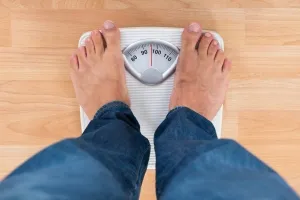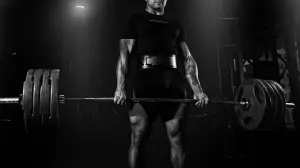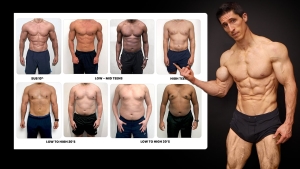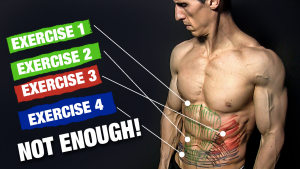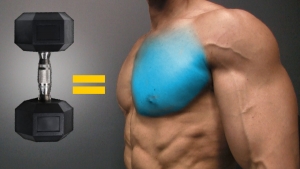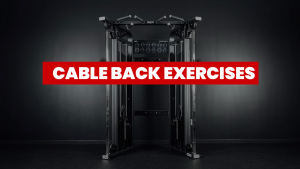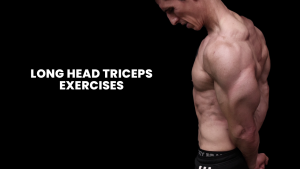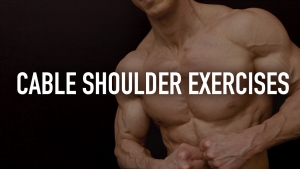Fitness calculators like a one rep max calculator or a pace calculator are generally very accurate. If you participate in strength training, a 1 rep max calculator can you help you determine how much weight you should be lifting for a given exercise, as well as help you progress in your strength training goals. Ensuring that you use proper form and monitor training intensity in your lifts is also key to building strength.
Pace calculators are also very accurate and can be used to determine your pace for exercise programs like running, rowing, walking, rucking, hiking or biking.
Calculators like the BMR calculator, calorie calculator and TDEE calculator ask your for fitness level or activity level to try to more accurately determine your calories burned, basal metabolic rate or total daily energy expenditure.
You can generally estimate your activity level based on how many days per week you exercise and what your exertion level is. For example, brisk walking, biking or other gentle forms of cardiovascular exercise would be considered light or moderate exercise. If you're doing 6-7 days per week of intense strength training, athletic training, more intense cardio forms, or work in a physical job like construction, this would be considered hard exercise or very hard exercise.
Your type and intensity of exercise matters, so it's important to be honest when estimating your activity level in these calculators.
You can use fitness and health calculators like a calorie calculator or calorie tracking app to help determine how many calories are in the foods you eat. You'll also want to use a fitness tracker to track workouts to determine how much energy you expend during a workout session.
To determine how much you should eat given your body weight, age, metabolic rate, and (how much daily calorie burn) you expend per day, you can use a fitness app or use calorie calculators like our Calorie counter, BMR calculator or TDEE calculator.
Combine the data from the calculators or fitness apps with your daily caloric intake and then you can choose to increase or decrease your calorie goals based on your fitness goals. Use all of this data to make sure you're eating the right amount of calories for your weight loss, muscle mass building or other fitness goals.
To calculate nutritional values of foods, you may want to download a nutrition or calorie counter app that can provide you the calorie counts for the amounts of calories in foods you eat throughout the day. These apps have a database of food. If you're not into apps you can also keep an accurate food journal or food diary and look up those calorie values on the internet.
You can combine this calorie intake data with the calories you burn during your exercise routines to determine how many calories per day you should be eating based on your goals. Use the calorie burn calculator to determine how many calories you burn on average per day given your stats and your fitness level.
Depending on your goals you can then come up with a calorie target which would be an estimate of the calorie needs per day to help you lose fat or build muscle mass.
When it comes to weight loss and health goals, it's better to try to use a BMR calculator (basal metabolic rate), a TDEE calculator and a Calorie calculator and a Macro calculator rather than a BMI calculator. BMI is notoriously inaccurate because it tries to specify how the average person falls into a certain weight category (underweight, average, obese, morbidly obese) without taking into account lean body mass, body fat percentage and muscle mass.
To lose weight, you'll want to follow a healthy nutrition program as well as participate in a moderate exercise program that includes strength exercises and aerobic exercise. As strength training exercise intensity increases, you tend to burn more calories and build more muscle mass, which helps with overall fat loss.
Use the calorie calculator and a calorie counter app to determine what daily calorie intake is right for you to help you lose weight. Include the calories burned in your exercise sessions in your calculations to get an accurate caloric expenditure for the exercise you're doing. The BMR calculator helps you determine what your daily expenditure of calories is with just your basic bodily functions. You may also want to use the Macros calculator to ensure you're eating enough protein to support muscle mass. Inadequate protein or calories can cause muscle mass loss, and if you're putting effort into resistance training, you definitely don't want to lose muscle mass.
When it comes to fat loss and exercise, while cardiovascular workouts are important for maintaining a healthy weight range, they are not the end-all-be-all. Building muscle mass through a strength training total body workout is also important for weight maintenance, because muscle burns calories even while you're at rest, whereas cardio workouts only help with calorie burn during the workout. Be sure to include a lot of strength training in your fitness routine if you want to stay at your goal weight in the long term. A balanced approach to weight loss is key to maintaining a healthy weight range.






